Unique Christmas traditions around the world
Christmas is a time of celebration and joy, and people all around the world have their own unique traditions to make the occasion. Some of these may be familiar, but others will be a little more unusual. We’ve gathered a list of the most unique Christmas traditions around the world, as well as advice on how to experience them for yourself!
Japan
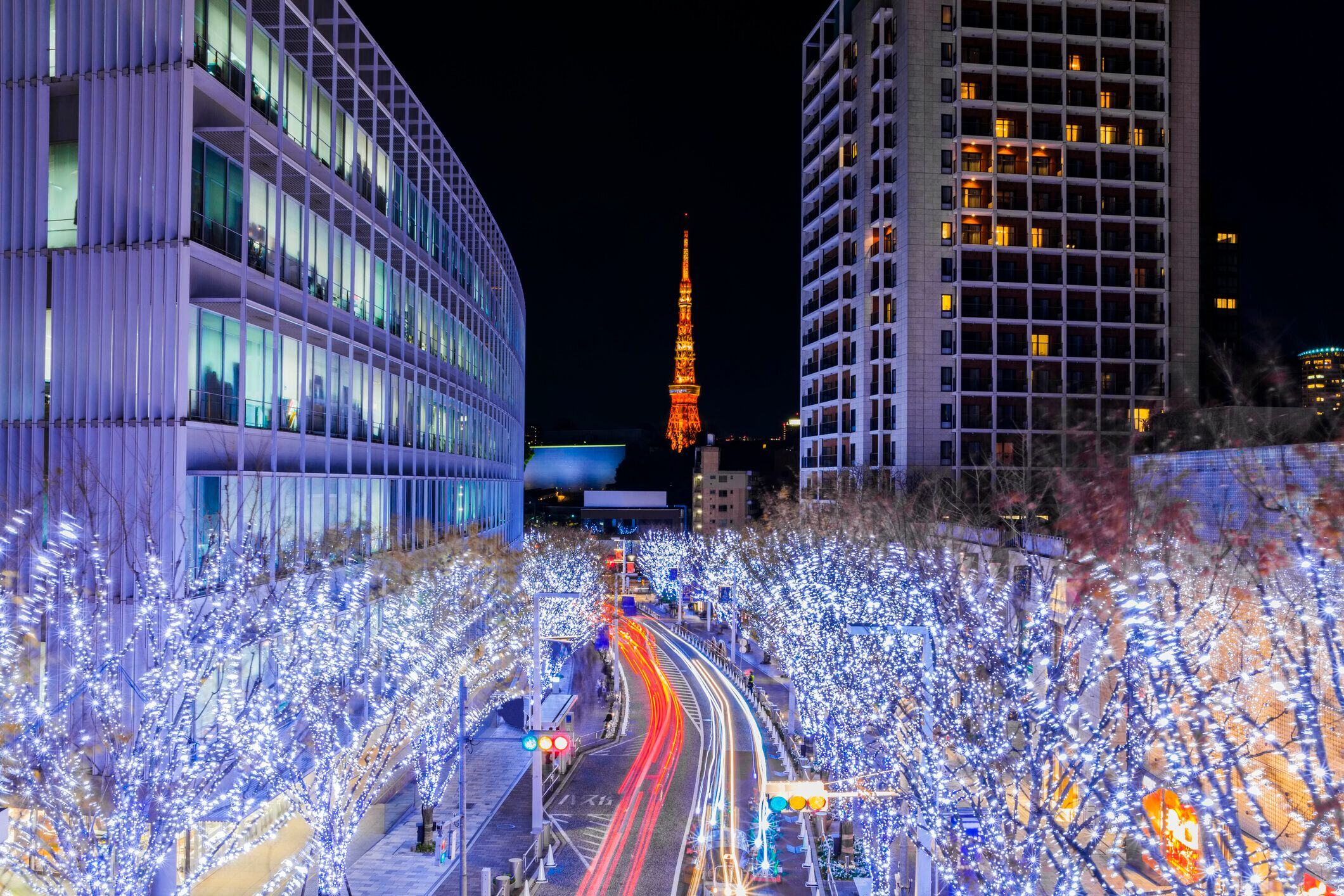
Japanese people would traditionally celebrate New Year’s Eve rather than Christmas, but due to an interest in Western (particularly American!) culture, Christmas is often celebrated in Japan as well. Rather than leaning into any religious traditions, they’ll use the holiday as an opportunity to see friends. After a campaign in the 70’s encouraging people to get KFC for Christmas, the chicken chain has remained a beloved Christmas tradition.
People will reserve a table months ahead, or queue for up to two hours to get some finger-licking good food on Christmas day.
If you’re looking to experience Christmas the Japanese way, you’ll probably want to see something a little more traditionally Japanese! Why not get a flight to Kyoto to spend some time with Geishas? A round trip from London is available from £1,193. Kyoto is traditionally the city where Geishas go for their education, and while you’ll be able to see Geishas walking down the street in many parts of the city, you can also book your own private tea ceremony for £80 per person. To get the full experience, you can also stay in a traditional Japanese hotel, where the beds are made up of tatami, straw mats on the floor. The Mitsuki Yasaka hotel has rooms available from £188.
Norway
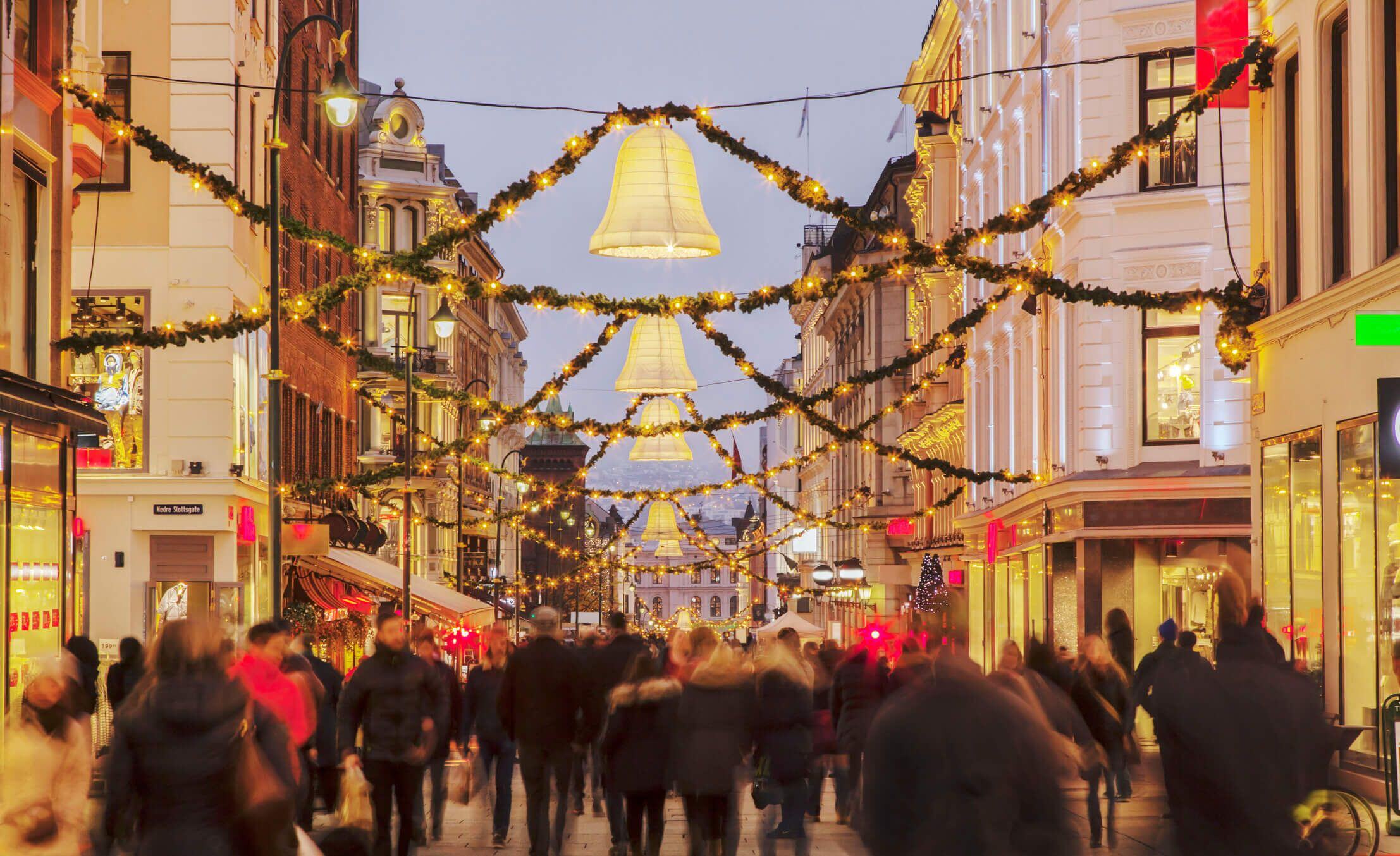
In Norway, Santa is not the only mythical creature coming for a visit. Homes are often decorated with “nisser,” ornaments of gnomes that are said to be quite mischievous. They’re seen as protectors of the home, and during the Christmas season you need to treat them nicely, or they might decide to abandon the home! Children will leave out food for the nisser on Christmas Eve to make sure they stick around for the upcoming year.
This food, also enjoyed by the humans in the home, is normally a pudding made of rice called “risengrynsgrøt,” served with cinnamon and sugar on top. This is a popular breakfast throughout the month of December, and on Christmas Eve, they put a single almond in the porridge before serving it up. Getting the almond means good luck for the upcoming year.
Not many countries can claim to have an official Christmas town, but Norway do, in Tromsø. The city comes to life in the winter with lights, Christmas markets and locals who are so keen to share their Christmas traditions. If you stay in the glass igloos at Lyngen North you’ll have a chance to also see the northern lights – though they may not be specifically Christmassy, their magic is definitely in the spirit of the season!
Fancy a Christmas market somewhere a little less cold? Check out the five best Christmas markets in Europe.
Germany
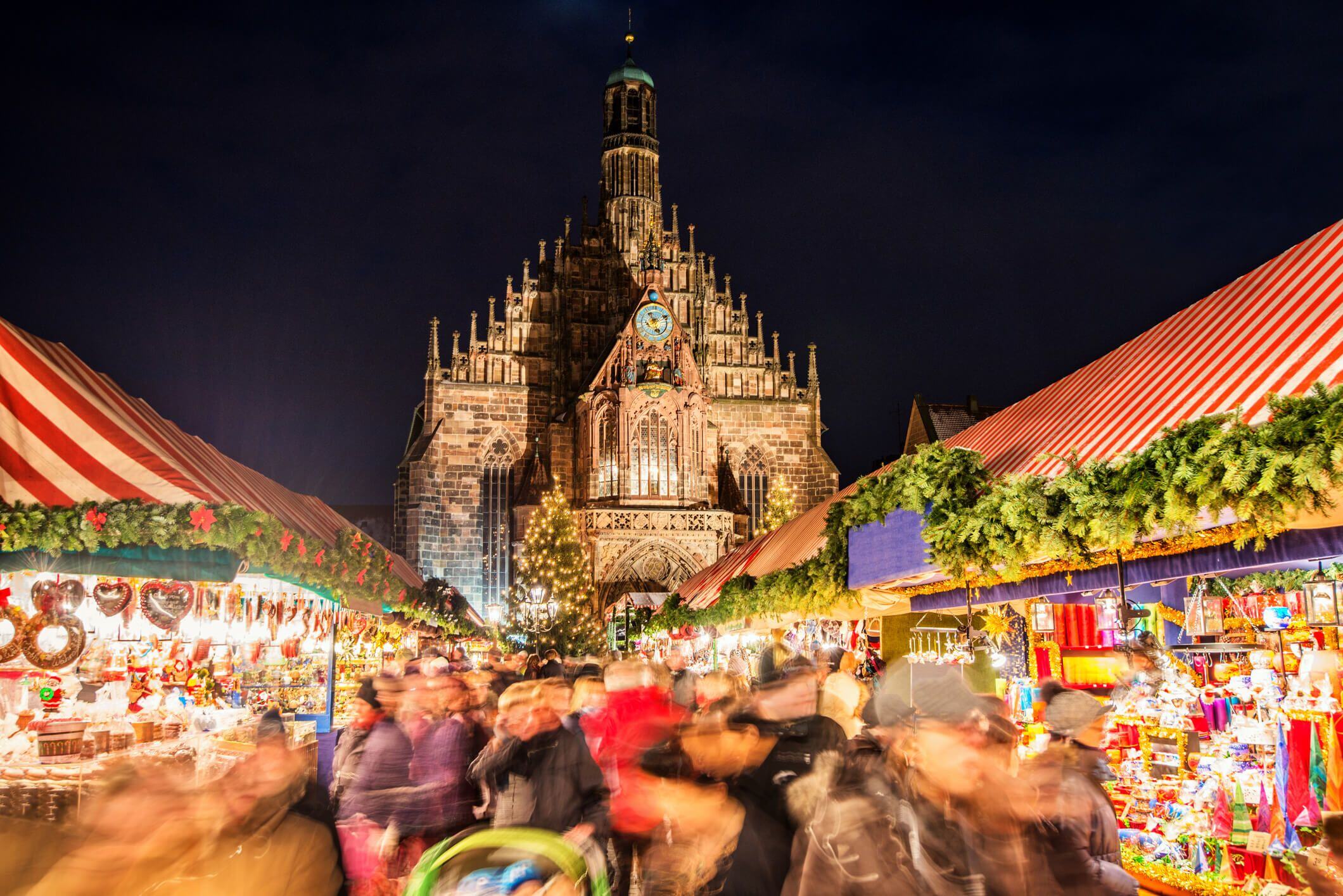
One of the most important Christmas traditions is the Christmas tree, and even more so in Germany, where the practice is believed to have originated in the 16th century. When decorating the tree, the last ornament to be hung is a pickle, hidden somewhere in the branches. On Christmas morning, whichever child in the family finds the pickle first gets an extra present from Santa.
And speaking of presents, no country does handmade gifts from local markets quite like Germany does. The best place to go in December is Nuremberg, which hosts one of the biggest Christmas markets in the country, with over 200 stalls full of handmade items – nothing mass produced allowed.
While you’re there, make sure to check out the old town and the Imperial Castle. Nuremberg is one of the most well-preserved Bavarian cities, and a walk through the old town feels like being transported back in time. If you’d like to hang on to the feeling a little longer, you can even stay in one of the old castles, from £94 per night.
Venezuela
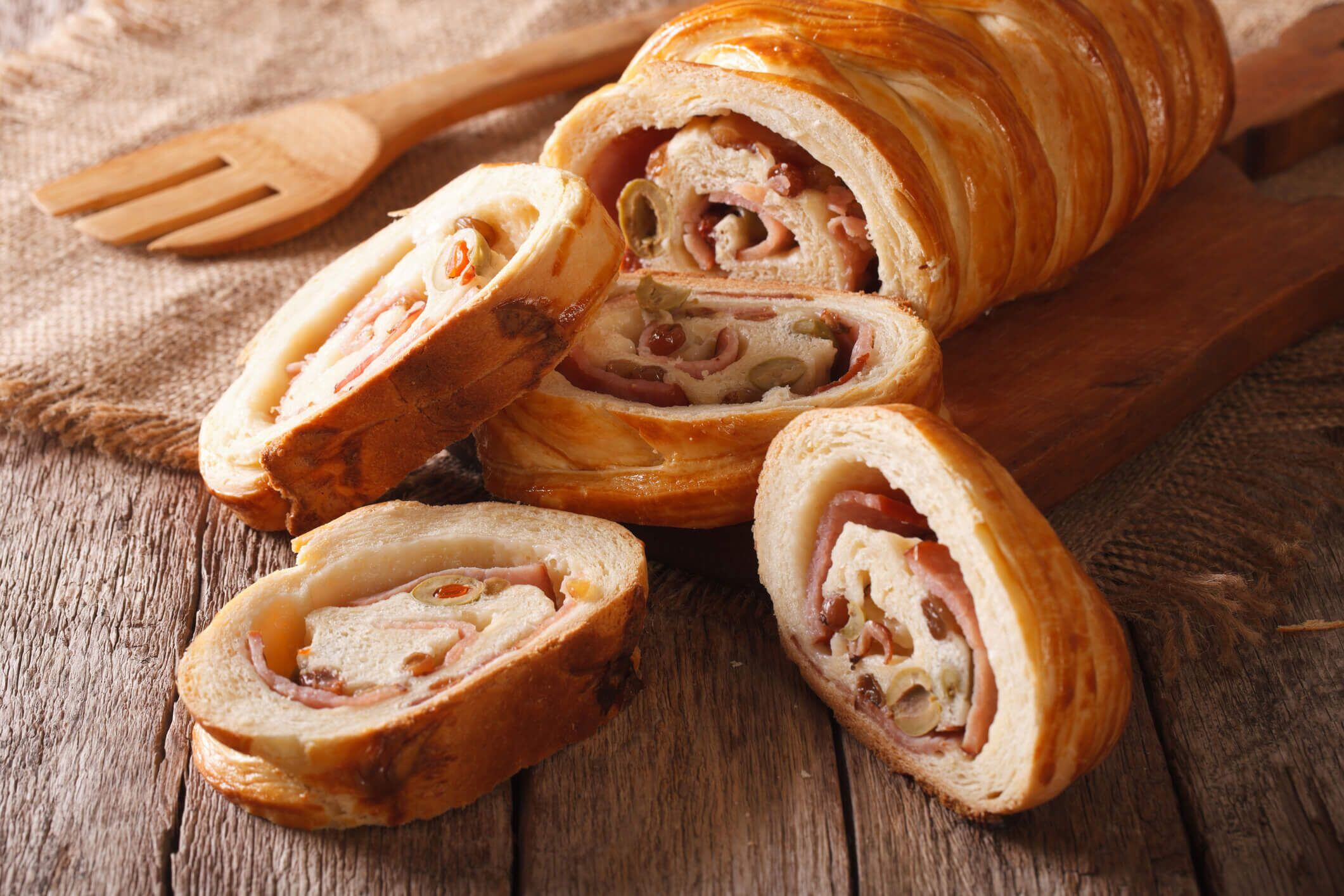
In Venezuela, Christmas starts earlier than in most countries, on the 16th Of December. The festivities kick off with the Feast of the Virgin of Coromoto, the patron saint of the country. After this, families spend nine days preparing for Christmas.
On Christmas Eve everyone gathers for a large feast, the Nochebuena. This feast has all the ingredients for a great party, with a variety of food including a Christmas loaf pan de jamon (Venezuelan ham bread), families gathered around – and roller skating. Because temperatures in Venezuela average 25 degrees, sledding is not an option, so people started roller skating instead. Families gather in town squares and roller skate all night, and finish up by going to mass at 5 am.
If you’d like to celebrate Christmas somewhere warmer, you can get return tickets to Caracas from London for just under £650. Because Venezuela is a fairly cheap country to visit, a nice hotel in central Caracas like the Waldorf Boutique can be booked for as little as £677 per week.
Once you’ve had your fill of roller skating Santas, make sure that you also visit the Ávila National Park, mostly dominated by a beautiful mountain range with Venezuela’s highest point. It is popular with both locals and tourists for shorter walks and hiking – and if you’ve got a spare 7 hours the Paraiso Falls hike with its stunning waterfalls is a great option.
Ukraine
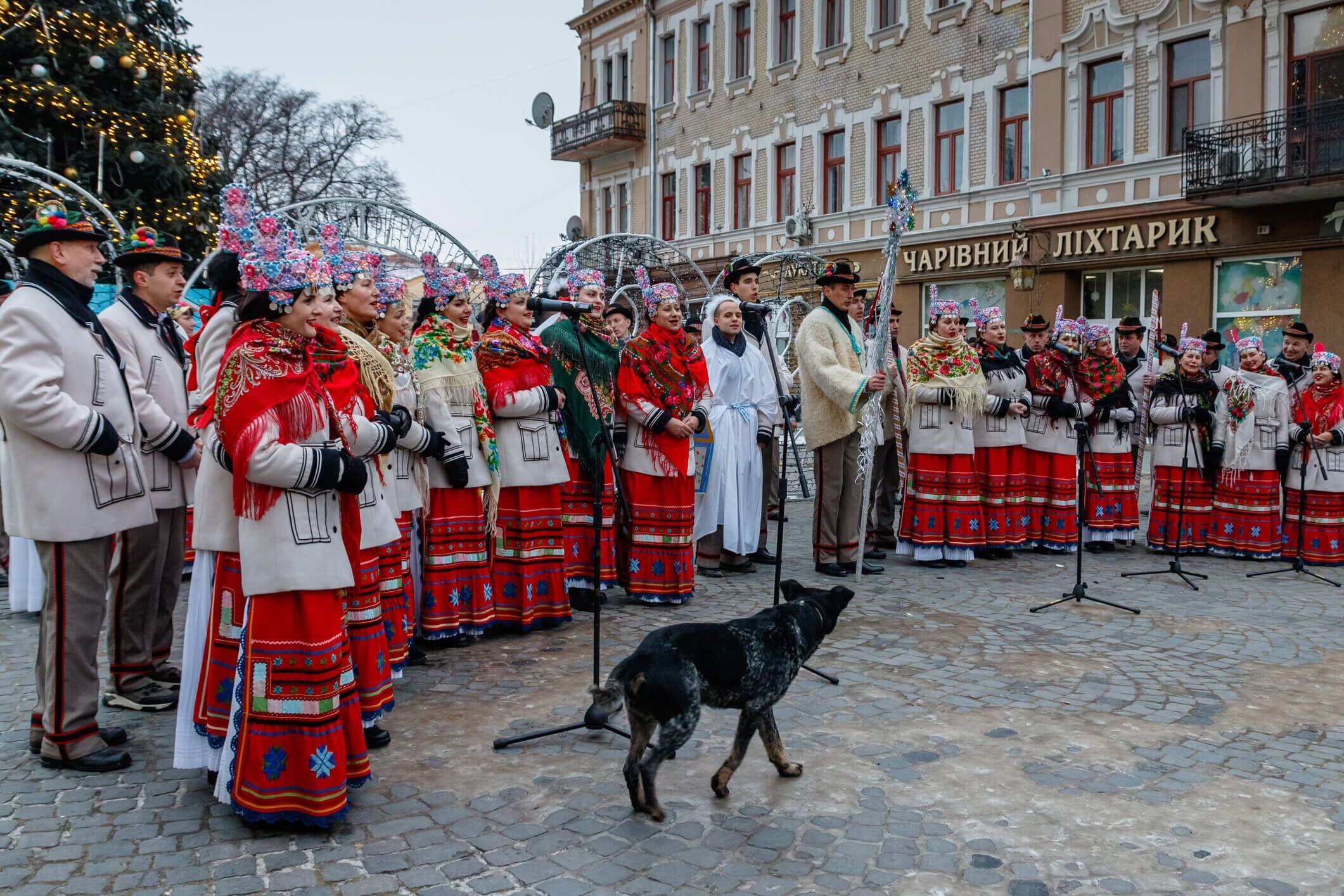
In Ukraine, Christmas is normally celebrated on the 7th of January, as is the case for many of the Orthodox countries. Though celebrations this year will be muted due to the ongoing war, many Ukrainians across Europe will honour their traditions.
The most important part of this celebration is the Christmas Eve meal, “Sviata Vechera”. This normally consists of 12 dishes, each of which has a particular meaning and symbolises one of the 12 apostles. Each dish symbolises a different aspect of the holiday season, the Christmas story and people’s wishes for the coming year.
These dishes include kutia, a sweet porridge, borscht, beetroot soup, and varenyky, boiled dumplings often filled with potato and cheese or sauerkraut. Another thing they may be filled with is coins. Doesn’t sound particularly delicious, but similarly to the Norwegian tradition, whoever gets the coin will have a great year.
If you’d like to donate to support Ukraine, you can do so here.
Whether you’re celebrating Christmas in the UK or abroad, make sure that you’re getting the best rates and fee-free spending by using your Caxton Currency Card. Apply for yours today, or top up your existing card.



